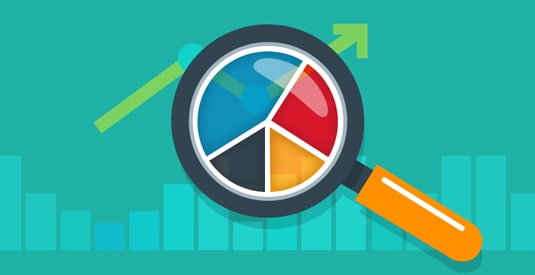
Data has always been the cornerstone of business success. Today, Data Analytics Services are not just a support function, they are transforming how organizations operate, innovate, and compete. As businesses across industries become more data-driven, they are diving deeper into analytics to enhance efficiency, gain a competitive edge, and improve profitability.
Global enterprises now rely on analyzing data associated with customers, operations, market trends, and economic factors. In the digital-first economy, organizations no longer just store and categorize information; they actively leverage Data Analytics and Business Intelligence Solutions to detect patterns, forecast outcomes, and make faster, smarter decisions.
The Multi-Step Process of Data Analytics
There is no single technology that defines analytics. It’s a holistic process that fuels business intelligence. The framework typically follows these steps:
- Defining Objectives: Every analysis begins with a clear purpose. For instance, are you aiming to optimize supply chain costs, improve customer experience, or predict market demand?
- Data Collection: Relevant data is gathered from multiple sources—transactional systems, IoT devices, surveys, web logs, or customer interactions. This raw data is then cleaned and structured so that advanced tools can process it.
- Data Analysis & Visualization: Using modern Data Visualization Services, organizations import the refined data into analytical platforms. These tools uncover patterns, correlations, and trends while enabling interactive dashboards for decision-makers.
- Insights & Action: The conclusions are converted into actionable insights, enabling companies to fine-tune strategies, reduce risks, and seize opportunities in real time.
Core Technologies Powering Data Analytics Services
Modern analytics goes beyond spreadsheets. It is powered by a robust ecosystem of technologies and methodologies:
- Data Mining: Examines massive datasets to detect hidden patterns, eliminate noise, and predict outcomes. By enabling precise forecasting, data mining helps organizations make proactive, data-driven decisions.
- Machine Learning & AI-Powered Analytics: Machine learning, a subset of AI, processes large and complex datasets in minimal time. It enables predictive and prescriptive analytics, helping organizations discover profitable opportunities, mitigate risks, and deliver personalized experiences.
- Hadoop & Big Data Frameworks: With exponential data growth, Hadoop and cloud-based frameworks allow businesses to process diverse, high-volume data efficiently. Their distributed computing models provide scalability, speed, and cost efficiency, crucial in today’s digital landscape.
- Text Mining & Natural Language Processing (NLP): Text mining extracts insights from unstructured data like emails, social media feeds, customer feedback, and online reviews. By combining NLP and machine learning, businesses can analyze sentiment, track brand perception, and discover emerging trends.
- Cloud & Real-Time Analytics: Cloud-native Business Intelligence Solutions allow companies to access real-time dashboards and predictive insights from anywhere, ensuring agility and scalability in decision-making.
Why Businesses Need Data Analytics Services
The market is competitive, organizations can no longer rely solely on historical data or intuition. Data Analytics Services empower enterprises to:
- Improve decision-making with predictive insights.
- Enhance customer satisfaction through personalization.
- Optimize supply chains, operations, and resource allocation.
- Detect fraud and mitigate risks in real time.
- Gain transparency with intuitive data visualization services and interactive dashboards.
Conclusion
From automating reports to delivering AI-powered foresight, data analytics has evolved into a business necessity. As organizations embrace advanced Data Analytics Services and Data Visualization Services, they unlock opportunities for growth, resilience, and innovation.
In a world where data volumes are doubling at unprecedented speed, businesses that invest in end-to-end analytics and business intelligence solutions will lead the digital economy of tomorrow.









































We will verify and publish your comment soon.